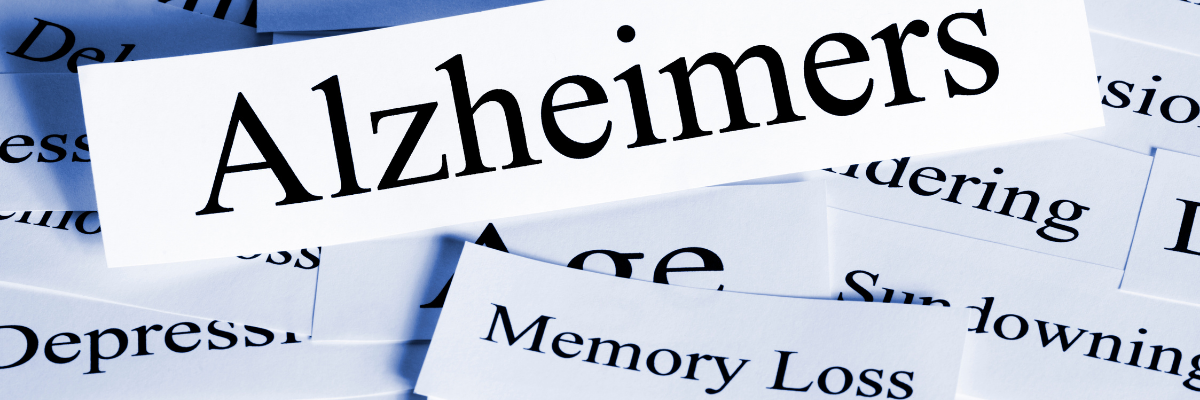What is the Difference Between Dementia and Alzheimer’s Disease?
Both Dementia and Alzheimer’s Disease manifest themselves with similar symptoms, such as memory loss and confusedness. Both conditions also particularly affect older people. How do you tell the two apart? What’s the difference between Alzheimer’s and dementia? What are the symptoms and ways to treat both? Today we will tell you all you need to know about it! You’ll learn about Alzheimer’s disease stages, dementia causes and types, as well as the ways of caring for a person suffering from any of them. We’ve got a lot to talk about, so without further ado, let’s consider the main distinguishing features of both diseases.
What is dementia?
To determine what’s the difference between dementia and Alzheimer’s, you first need to know something about both conditions. Dementia is a collective term for a number of progressive conditions that negatively affect brain function. As defined by the World Health Organisation, Dementia is a syndrome – usually of a chronic or progressive nature – that leads to deterioration in cognitive function beyond what might be expected from the usual consequences of biological ageing. It affects memory, thinking, orientation, comprehension, calculation, learning capacity, language, and judgement. The impairment in cognitive function is commonly accompanied, and occasionally preceded, by changes in mood, emotional control, behaviour, or motivation.
Dementia types
There are three basic dementia types, which are characterised by different symptoms. These are:
- Vascular dementia, caused by problems in blood supply to brain cells, usually due to strokes or a series of small strokes, known as transient ischaemic attacks (TIAs), which result in areas of cell damage in the brain.
- Frontotemporal dementia, which is a progressive condition, meaning that symptoms worsen over time. The condition appears to affect people between the ages of 45 and 65; however, it also occurs in the older population.
- Lewy body dementia — a progressive condition, meaning that symptoms worsen over time. The condition affects movement and control of motor functions, but less so on memory. A person suffering from dementia with Lewy bodies may:be prone to falls, exhibit tremors in the limbs, have difficulty swallowing, drag their feet, or experience disturbed sleep due to intense dreams.
Dementia causes
Unfortunately, there is no clear answer to the question of what are the Dementia causes. Dementia results from a variety of diseases and injuries that primarily or secondarily affect the brain, such as Alzheimer’s disease or stroke and the resulting problems in blood supply to brain cells, but it can also be a condition related to the brain’s natural ageing process.
Dementia symptoms
Regardless of the type of dementia diagnosed and the part of the brain that is affected, each person will experience dementia symptoms in their own unique way. Some of the difference between dementia and Alzheimer’s, lies in the symptoms.
Dementia symptoms can include:
- Memory disorders,
- Information processing disorders,
- Communication difficulties,
- Focus and concentration disturbances,
- Behavioural disorders,
- speech disorders
- Difficulty recognising people, even close ones,
- Trouble naming objects,
- Delusions, hallucinations,
- Reasoning and judgment.
What is Alzheimer’s disease?
Alzheimer’s disease is neurodegenerative, meaning that it is a gradual loss of nerve cells and is the most common cause of dementia in old age. It develops over many years, causing irreversible changes in the brain, and can lead to the patient being unable to function independently. However, the disease can be delayed by early diagnosis and prompt treatment, which improves the patient’s quality of life. The onset of Alzheimer’s disease is often unnoticeable, and disturbances appear slowly, gradually making daily life more difficult.
Alzheimer’s disease stages
There are three basic Alzheimer’s disease stages; Early stage, manifested by forgetfulness, losing track of the time and becoming lost in familiar places. Middle stage when senior becoming forgetful of recent events and people’s names, confused while at home, difficulty with communication and mood changes. Third, is the late stage, which is associated with having difficulty walking, an increasing need for assisted self-care, difficulty recognizing relatives and friends and becoming unaware of the time and place.
Alzheimer’s disease causes
Alzheimer’s disease is the most common type of dementia in the UK. It is a physical condition caused by changes in the structure of the brain. It results from a build-up of proteins in the brain, resulting in the formation of ‘plaques’ and ‘tangles’ that impair the ability of brain cells to transmit messages and ultimately lead to their death.
Alzheimer’s disease symptoms
Alzheimer’s disease symptoms tend to gradually increase in intensity over time and can also affect concentration, memory, communication and word finding as well as skills such as reading, writing, counting and other basic skills. Other less noticeable symptoms include irritability, apathy, or mood disorders.
What’s the difference between Alzheimer’s and dementia?
Both conditions are associated with similar symptoms and although the causes may be different, it is worth focusing on the similarities and catching the symptoms in the early stages of both conditions.
For more knowledge on health and senior living, check out the other articles available on our blog.















